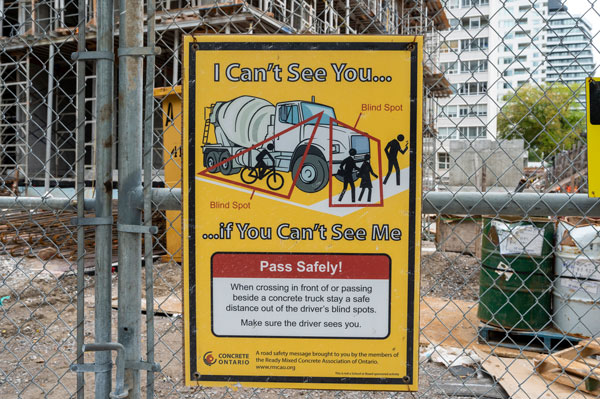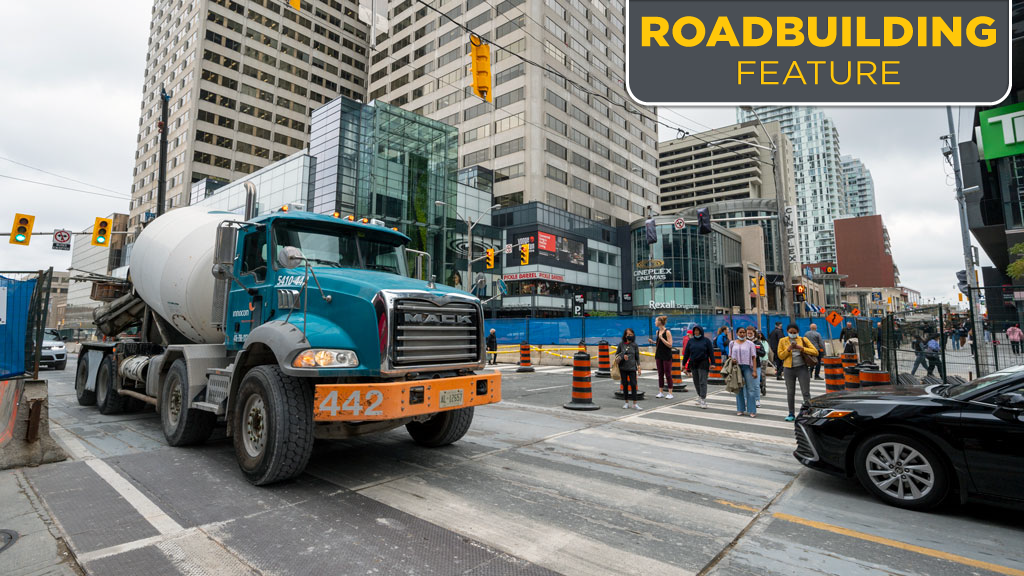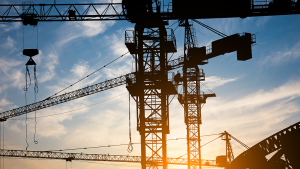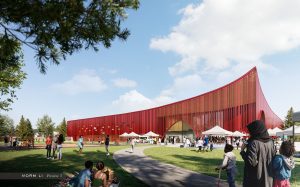A special ‘construction hub’ pilot project designed to increase safety and coordinate construction activity in a densely congested part of central Toronto is reaping dividends and now the city is on the threshold of establishing three more such hubs.
Although their exact location is still being is being finalized, they will be located in Toronto’s downtown, Liberty Village and downtown village areas. They should be operational by April and project managers for each have been hired, says Craig Cripps, manager of construction coordination and traffic mitigation with the city’s transportation services department.
Significant utility, water and road works, Metrolink transit expansion projects, and a high density of private developments were the factors dictating the selection of those districts which can be roughly described as being in the west, downtown, and east sections of the city, he says.
Each will be crossed by the 15.6-kilometre, 15-stop Ontario Line subway, he points out.
The three new hubs are intended to build on the success of the city’s first ever Yonge-Eglinton Construction Hub Program.
Named after the two major streets which intersect with each other and considered to be heart of mid-town Toronto, the Yonge and Eglinton area is a mix of businesses, established residential neighbourhoods, significant new residential developments—both planned and underway—as well as being the centre of the still-under-construction 19-kilometre-long, 25-station, Eglinton Crosstown light rail transit line.
It was also the site of a fatality when a pedestrian was killed near a construction site in 2019. Following that death, the city moved fast and established the Yonge-Eglinton Construction Hub. Inspired by a similar initiative in Seattle, the pilot program was operational the following year and has a three-year timeline.
The hub’s purpose is to manage construction activity and improve dialogue between contractors and the area’s residents and business owners, with the goal of reducing the impact of construction on the community.
A city employee is the construction hub project manager and that person’s function is to act as a liaison between contractors, residents and local business owners, as well as with other city departments, he explains.
There are bi-weekly meetings between city officials and both public and private contractors and at those meetings construction industry representatives are asked to provide to provide two- to three-week “look ahead schedules.”
That forecasting is especially important in controlling the number of concrete pours—and concrete trucks—into the community at any one time. But those limitations and precautions also benefit contractors and ensure they’re not all vying for concrete simultaneously.
The Eglinton Crosstown Link project “eats up a lot of concrete” and the concrete delivery industry is wrestling with supply chain issues, he says.
In addition, there are monthly consultation meetings with residents’ associations and area councillors, as well as regular updates to a construction hub webpage.

Other components of the program are city ‘traffic agents’ who enforce one way truck traffic on two side streets which funnel into the Yonge/Eglinton area and lengthening—on a temporarily basis—no parking areas. This gives drivers more space to manoeuvre their trucks when turning and also improves sightlines, says Cripps.
Some of the measured yardsticks of the hub program’s success include reduced construction costs and improved measures to reduce dust and airborne particles. The city has begun monitoring air quality in partnership with the University of Toronto, he says.
Still, another aspect of the program is a planned street fair which would entail closing a portion of Yonge Street for the display of private and city owned equipment. This would give the public an idea of the vehicles’ size and operational constraints, plus the safety precautions which have to be in place. Originally, it has been scheduled for April 2020, but was cancelled because of COVID. At this point, the fair is in a “rough plan” stage.








Recent Comments
comments for this post are closed